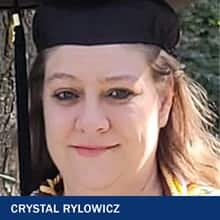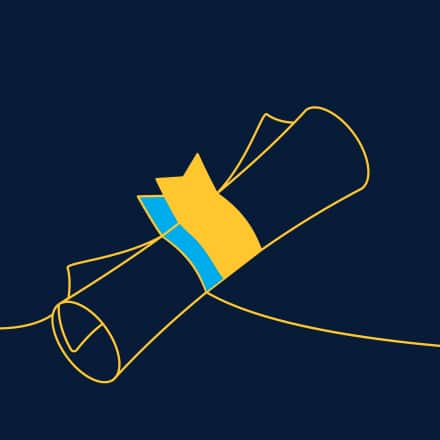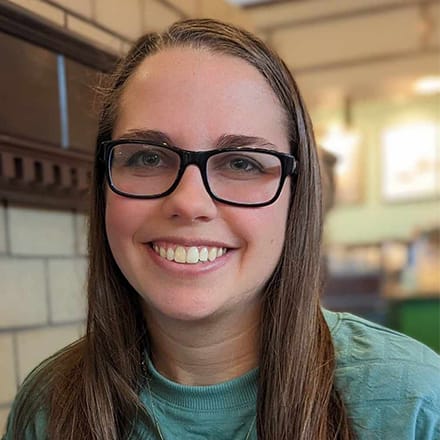
What is Experiential Learning? Discover How You Can Learn by Doing
It’s a common complaint among job applicants: Why does an entry-level position require two years of experience?
There may be as many reasons as there are hiring managers, but you can earn the experience employers demand — even for entry-level roles — while also getting your foot in the door of an industry that interests you.
Whether you’re just entering the job market or looking to change careers, experiential learning can increase your understanding of an industry, expand your professional network and begin to build a base of experience through internships, volunteer opportunities or partnering with a company as part of a for-credit college course.
What Does Experiential Learning Mean?
You can think of experiential learning as just that: anything that allows you to experience a job or profession as a way of deepening what you’re learning in a classroom.
Experiential learning introduces you to the knowledge and skill set you'll need in your field by actually placing you in the workforce, according to Darrin Heald, a director of community partnerships for SNHU and a former internship manager.

What are Experiential Learning Examples?
As a college student, you can participate in several types of experiential learning opportunities, many of which are incorporated into a class or degree program. Heald said the SNHU Career Team identified at least 17 types of experiential learning.
Some forms include:
- Challenges
- Class projects
- Internships
- Research projects
- Service learning
Here are examples of what experiential learning can look like across a variety of academic programs:
Accounting
If you're earning an accounting degree, you may develop a particular interest in a tool or subject area and want to dive deeper than your course allows. You could take an open-ended experiential learning course that lets you spend more time engaging with it.
You might decide, for example, to use the college credits to gain more experience in QuickBooks or Tableau. You could also focus on earning free Volunteer Income Tax Assistance (VITA) certifications during this time that qualify you to work with underserved community members to file their taxes.
Creative Writing
Who said writing had to be solitary? Those earning a creative writing degree or enrolled in another liberal arts program at SNHU can sign up for the W.R.I.T.E. Challenge to advance their professional writing skills while working in groups to produce a polished, publishable article.
 "W.R.I.T.E. gives students in the liberal arts a collaborative experience that they can apply forward to future career opportunities," said Bonnie Fox, an adjunct instructor of English at SNHU. "They don’t just work on writing; they also assign and perform individual roles, organize and edit their ideas as a team and practice respectful accountability among team members."
"W.R.I.T.E. gives students in the liberal arts a collaborative experience that they can apply forward to future career opportunities," said Bonnie Fox, an adjunct instructor of English at SNHU. "They don’t just work on writing; they also assign and perform individual roles, organize and edit their ideas as a team and practice respectful accountability among team members."
From article ideation and research to interviews and writing itself, this is an experiential learning opportunity that allows teams of writers to develop a resource for other writers. "The final product is a blend of everyone’s ideas and everyone’s writing voices," Fox said.
At the end of the course, one article is selected by a group of professional writers for publication in The Penmen Review, SNHU's online creative writing journal.
"From Nothing to Something: Building Your Blog's Audience" is the W.R.I.T.E. Challenge's most recent winning article.
Cybersecurity
You can participate in the National Cyber League (NCL) if you're earning a cybersecurity degree or related technology program. According to the organization's website, "The NCL ... enables students to prepare and test themselves against practical cybersecurity challenges that they will likely face in the workforce."
NCL hosts two competitions per year with opportunities for students at all experience levels to advance in many knowledge areas. Some, according to Cyber Skyline, include:
- Cryptography
- Network traffic analysis
- Open source intelligence
- Web application security
 "NCL opened my eyes to the different areas within cybersecurity and really piqued my interest in the field," said SNHU alumna Gina Llanos Cramer '20.
"NCL opened my eyes to the different areas within cybersecurity and really piqued my interest in the field," said SNHU alumna Gina Llanos Cramer '20.
As an NCL player, you'll also receive a scouting report that captures your performance. "I received one after each competition and was able to use them on my resume and during my interviews to highlight some strengths, speak about my weaknesses and how I was working to overcome them, and show leadership qualities since I was the captain of a couple of the NCL team games," Llanos Cramer said.
Environmental Science
 A range of experiential learning opportunities exist within the environmental science degree program at SNHU, and what you do depends on your interests. Some of the topics you could explore through hands-on projects and independent research, according to Tyra Davey, an associate dean of SNHU science programs, include:
A range of experiential learning opportunities exist within the environmental science degree program at SNHU, and what you do depends on your interests. Some of the topics you could explore through hands-on projects and independent research, according to Tyra Davey, an associate dean of SNHU science programs, include:
- Animal behavior
- Certifications and licensures
- Citizen science
- Environmental sustainability
- Grant writing
 Students enrolled in this award-winning online Environmental Science Experiential Learning course can also leverage data gathered in an Arboretum on the university's Manchester, New Hampshire, campus.
Students enrolled in this award-winning online Environmental Science Experiential Learning course can also leverage data gathered in an Arboretum on the university's Manchester, New Hampshire, campus.
"Using real-world data provides our students with authentic learning opportunities that can help them practice their critical thinking skills and apply the scientific method," said Dr. Kelly Thrippleton-Hunter, an adjunct instructor in SNHU's STEM programs. "They can utilize the arboretum data as a repository to collect specific data they may need to analyze and answer research questions that they pose and use (the) data to help explain real-world phenomena."
Game Design
The Game Design Challenge brings together students enrolled in SNHU's game art and development program and creative writing program to collaborate on an original first-person shooter or puzzle game.
 "Game development projects (are) always collaborative endeavors in the industry, and no game can be produced without the ability and willingness to work with the other members of the production," said Max Callahan, an associate dean at SNHU. "Those are learned and practiced skills that graduates will be expected to have when they enter the professional realm."
"Game development projects (are) always collaborative endeavors in the industry, and no game can be produced without the ability and willingness to work with the other members of the production," said Max Callahan, an associate dean at SNHU. "Those are learned and practiced skills that graduates will be expected to have when they enter the professional realm."
Each team involved in the Game Design Challenge can pitch their concepts, writing and imagery to a panel of industry professionals. In the fall, they also delivered a pitch to Steve Scallen, a product manager with Microsoft Garage.
While the final product is a significant accomplishment, the journey to create it demonstrates a lot to employers as well. "The experience of collaborating and communicating with their fellow team members, resolving disagreements, relying on each other and themselves to deliver on a schedule for their teams — those were the most beneficial outcomes for this challenge," Callahan said.
Health Information Management (HIM)
You may need to complete a professional practical experience in your health information management degree program. What this means is you'll spend a class working on a real-world HIM project under the supervision of an industry professional.
 Heidi Nolan '19 spent her professional practical experience in a health center, determining why 52% of Nevada's Medicaid population was not regularly seen by healthcare providers — and building a strategic plan to fix that.
Heidi Nolan '19 spent her professional practical experience in a health center, determining why 52% of Nevada's Medicaid population was not regularly seen by healthcare providers — and building a strategic plan to fix that.
Her proposed solution? Bringing busses to community health centers to offer free dental exams and mammograms — an idea inspired by a case study she recalled from a previous HIM class.
The executive staff at the health center embraced the suggestion.
Although she didn't have to, she completed her professional practical experience with an organization she didn't already work for. “Because I was so willing to step out of my comfort zone, I gained so much more from it,” she said.
Nolan said the experience, combined with her degree, broadened her career options. She had four job offers after she graduated.
Healthcare
 If you're enrolled in a healthcare program, you're likely familiar with the many challenges healthcare organizations face. SNHU's Higher Education and Real-world Training (HEaRT) Challenge pairs groups of students with an employer partner to address a problem they are facing.
If you're enrolled in a healthcare program, you're likely familiar with the many challenges healthcare organizations face. SNHU's Higher Education and Real-world Training (HEaRT) Challenge pairs groups of students with an employer partner to address a problem they are facing.
Past HEaRT Challenges include:
- Students researched and drafted nursing recruitment and retention plans for two retirement home communities and presented their ideas to executives at the organizations.
- Students focused on succession planning strategies for a New Hampshire hospital and healthcare facility to ensure new leaders are prepared when their successor retires or leaves.
- Students examined the rise in violence against healthcare workers and sought ways to communicate the issue — a challenge presented to them by a healthcare employer.
“This challenge allows students to do more than 'say' they know how healthcare works. They get to prove it,” said Dr. Toni Clayton, an executive director of health professions at SNHU. “Along the way, they are able to build and demonstrate a variety of skills, including critical thinking, problem-solving, teamwork and project management, all while networking with peers and employers.”
HEaRT's success has led to several national accolades, including the Western Interstate Commission for Higher Education Cooperative for Educational Technologies Award (WCET) in 2022. The WCET Award recognizes the efforts of institutions and organizations who use innovative solutions to meet educational needs.
Human Resources
If you're earning an online human resources degree or enrolled in another business program at SNHU, you can involve yourself in a project similar to HEaRT. The Amica Challenge allows you to act as an HR consultant to Amica Mutual Insurance Company. Each Amica Challenge centers on an HR problem Amica poses to groups of students, who must investigate it, conduct research and present their findings and recommendations to the company.
One challenge focused on ways the insurance provider could improve its HR practices across four generations of employees: Baby Boomers, Gen X, Millennials and Gen Z.
 “I am very proud of our finished product,” said Valerie Carroll, an SNHU student participant. “We put together a quality presentation with real-world solutions — not just theory.” It included diversifying employee communications to appeal to different age groups and developing a mentorship program.
“I am very proud of our finished product,” said Valerie Carroll, an SNHU student participant. “We put together a quality presentation with real-world solutions — not just theory.” It included diversifying employee communications to appeal to different age groups and developing a mentorship program.
Beyond the professional experience, Carroll enjoyed connecting with classmates through the challenge's remote working sessions. “It was really nice working directly with people in my program who were juggling school, work and home life," she said. "I wasn’t expecting a bonding experience from a group project, but it was a really nice benefit.”
Nursing
If you're in the RN to BSN program at SNHU, you're likely earning your degree with experience as a registered nurse and may already be acquainted with real-world experiences in nursing.
But to broaden your exposure to the field, you'll take a course called "Nursing in the Community," which includes a clinical practice experience relating to community health. Within this course, you'll study a community health issue within a population of people and make recommendations under the guidance of a licensed healthcare professional. At the end, you'll present your recommendations to community health leaders.
Some topics you might choose to study include:
- Dental health
- Drug use
- Food security
- Homelessness
- Low-income resources
- Obesity
 In addition to applying your knowledge of community health to a real-world situation, the experiential learning assignment allows you to explore more facets of healthcare while impacting a community and building your resume and network.
In addition to applying your knowledge of community health to a real-world situation, the experiential learning assignment allows you to explore more facets of healthcare while impacting a community and building your resume and network.
As a nursing student, you can also team up with healthcare students at SNHU to participate in the award-winning Higher Education and Real-world Training (HEaRT) Challenge, an experiential learning opportunity for students studying health professions.
"Through HEaRT, students can demonstrate essential skills, such as critical thinking, team building and project management, as they work to solve real-life problems faced by today’s employers," said Stacey L. Rosenberg, DNP RN ACNS-BC CNE, an undergraduate program nursing director at SNHU.
Psychology
Within social sciences programs such as psychology and criminal justice, you may have the opportunity to complete an internship for course credit. An internship can help you apply what you learn in your program at an organization.
 Toree Vandyke put what she was learning in her online psychology program to work during an internship with the United Service Organization (USO) Pathfinder Program, a program that helps service members transition to civilian life.
Toree Vandyke put what she was learning in her online psychology program to work during an internship with the United Service Organization (USO) Pathfinder Program, a program that helps service members transition to civilian life.
During her internship, she worked alongside a case manager to help service members determine their next steps — be it related to education, career or housing — and do some research for them.
Even though she wasn’t required to complete an internship, Vandyke is glad she went for it. “I think that internships are a great way to put ourselves out there and practice some of what we have been studying and see how it actually feels,” she said. “... This helped show me that I am right where I am supposed to be."
Sport Management
There are many ways to put theory to practice in a sport management program. Because it's a broad field, experiential learning opportunities can help you explore the different directions you could take your degree.
Several courses at SNHU allow you to examine real challenges and propose solutions, including one that encourages you to look at sports management through a marketing lens.
As interest in esports increases by the day, you might also wish to explore the theories, concepts and terminology related to the newer aspect of sports management. During the Esports Practicum, you can work on projects associated with SNHU's varsity esports team under the guidance of the director of esports.
 Internships are also a good way to gain hands-on industry experience. “(Internships are) a chance to get experience in your field that will help you understand what you like and don’t like so that you can make a more informed choice when job searching in the future,” said Megan Bickford, a career team lead at SNHU.
Internships are also a good way to gain hands-on industry experience. “(Internships are) a chance to get experience in your field that will help you understand what you like and don’t like so that you can make a more informed choice when job searching in the future,” said Megan Bickford, a career team lead at SNHU.
Some students have had luck in these four types of sports management internships:
- Fitness and athletic training
- Facilities and operations
- Event planning
- Sports broadcasting and media
Experiential learning isn’t always tied to a program or discipline, though. Some opportunities offer learning outcomes and soft skill development that can benefit you no matter your career goals.
One example of this is a learning opportunity that allows you to engage in diversity, equity and inclusion activities with classmates university-wide. At SNHU, “Exploring Diversity,” which is funded by the university's Office of Diversity and Inclusion, encourages interested students to learn more about different cultures and experiences in a collaborative environment that culminates in a presentation.
Recently, 50 students from a range of online degree programs, including social sciences, business, health, liberal arts and STEM, came together to study Black history and culture.
Over the course of six weeks, participants worked in groups to research a related topic and assemble a presentation that could take the form of a webinar, podcast, digital story or video. Some of the topics they explored included:
- Black women leaders
- Colorism
- Covert racism, discrimination and microaggressions
- Economic disparities
- Global Black history
At the end of the experience, successful participants walked away with new knowledge and a certificate of completion to support the skills they gained, such as teamwork, time management, research, writing for an audience, and presentation development and delivery.
Future installments of “Exploring Diversity" will focus on Hispanic heritage, the immigrant experience and military affiliation, inviting students to broaden their knowledge of the world.
Extracurricular Activities
 Another way to learn by doing and gain new skills is by participating in extracurricular activities. There are many clubs and organizations available to students, whether you're going to school online or in person. You may find organizations of like-minded students based on your major, hobbies or culture.
Another way to learn by doing and gain new skills is by participating in extracurricular activities. There are many clubs and organizations available to students, whether you're going to school online or in person. You may find organizations of like-minded students based on your major, hobbies or culture.
Amanda Seibel, director of student involvement at SNHU, said that participating in an extracurricular activity can help students develop a variety of skills, such as:
- Communication
- Conflict resolution
- Organization
- Teamwork
- Time management
According to Seibel, club leadership is responsible for organizing meetings and communicating with their peers, but they aren't the only ones who benefit from extracurriculars. Any club member may help with activities such as event planning or setting agendas. The skills gained in an extracurricular setting can transfer well to the classroom and the real world, Seibel said.
Why is Experiential Learning Important?
While there are many types of experiential learning, there are just as many benefits to your academic and real-world knowledge, not to mention the impact they can have during a job search.
Experiential learning is important in education because it can help you:
- Acquire relevant experience
- Build your network
- Develop skills
- Feel more engaged
- Find a sense of direction
- Practice interdisciplinary collaboration
Take a closer look at each reason:
1. Acquire Relevant Experiences for Your Resume
A chief benefit of experiential learning is that it helps you gain experience in a field before you begin your career. That is vital to your academic journey since the job market you will enter often expects 1-2 years of experience, even for entry-level positions.
 Experiential learning opportunities that build on skills and knowledge relevant to your academic program can help fulfill those qualifications you might encounter on the job boards.
Experiential learning opportunities that build on skills and knowledge relevant to your academic program can help fulfill those qualifications you might encounter on the job boards.
"(SNHU's online) experiential learning offerings are a solution to finding time to gain the experiential competencies and gain the confidence to speak to their accomplishments in an interview," said Sonja Moffett, an early engagement partner at SNHU.
Some projects also include certificates or micro-credentials you can include on your resume and portfolio to make sure a potential employer understands what you’ve learned.
Moffet said experiential learning projects make students stand out as job candidates.
"By participating in our learning experiences, students position themselves for increased opportunities to prevail in a competitive interview process," she said. "A degree is a qualifier, but experience is a differentiator."
You can reach out to your college's team of career advisors to help you position the skills and knowledge you gained during the experience on your resume and in job interviews.
2. Build Your Network
Experiential learning projects also allow you to interact with professionals — and potentially future employers — along with fellow students with similar interests.
“(Experiential learning) offers great relationship-building and valuable conversations with employers," said Matt DiPirro, an associate dean of liberal arts programs at SNHU.
 Establishing a robust professional network can be a critical step toward getting your foot in the door at a company you want to work for. Many jobs aren’t ever listed or advertised, according to CareerOneStop, so finding those means you have to have a network you can tap.
Establishing a robust professional network can be a critical step toward getting your foot in the door at a company you want to work for. Many jobs aren’t ever listed or advertised, according to CareerOneStop, so finding those means you have to have a network you can tap.
“Students are getting really good exposure to employers in the field,” Heald said. “When done correctly, you really have an opportunity to showcase your skill, your educational knowledge and really start to build a brand for yourself as a student to these employers.”
3. Develop Skills
Employers across nearly every industry are looking for employees who have not only technical and subject-specific knowledge but soft skills as well. Those are skills, also known as transferable skills, such as critical thinking, teamwork and written and oral communication, that can be used across many disciplines.
During the job search, "students can speak to skill-based competencies that they can immediately use in their prospective roles and discuss soft skills gained as a participant," Moffett said.
Experiential learning provides many opportunities to develop and demonstrate these skills. Often, experiential learning projects involve research and working as part of a team and with industry professionals. That means students have to rely on their ability to research, collaborate and communicate.
"(Experiential learning) is a proactive approach to career readiness that develops their professionalism and any core competencies they will need, in addition to the theoretical knowledge they gain in their degree program," Moffett said. "We want to position them for success, and these experiences do that."
4. Feel More Engaged
Access to hands-on projects can also foster student engagement — something that's especially needed at the undergraduate level. Wiley, a leader in educational resources, recently surveyed students for The State of the Student 2022 report and found that 53% of undergraduate students are having difficulty staying engaged in class.
To become more engaged, 81% of all surveyed students agreed that it's important or very important "for schools to offer real company-led projects," according to the organization's report. Students want experience applying themselves to real-world material.
Plus, real-world approaches to learning, including the focus on experiential learning, can help you determine what you want to do with your education.
5. Find a Sense of Direction
 A growing number of students need that.
A growing number of students need that.
The State of the Student 2022 report found that the number of students feeling uncertain about what field they want to pursue more than doubled between 2021 and 2022, jumping from 9% to 21%.
Through experiential learning, you can get an idea of what kind of work you enjoy. "These experiences can be difference-makers for students preparing for the job market and understanding where to take their education," DiPirro said. "Many students complete their experience with a strong sense of meaning and direction for their education or career path."
You may discover positions and pathways you didn't know existed. Take advantage of the network you build during your experiential learning opportunity; there's likely an industry professional who can tell you more about an area that catches your interest — and let you know how to position yourself for a role in that.
6. Practice Interdisciplinary Collaboration
Many times, classes you take within your major are filled with people working toward the same degree program as you. Some experiential learning projects unite people from different disciplines, introducing them to what they might expect from a realistic working environment.
For instance, SNHU's Game Design Challenge brought game art and development students and creative writing students together to conceptualize a game.
 "(The creative writing students) gained real-world communication experiences by collaborating across disciplines with game art and development students," said Jacob Powers, an associate dean of creative writing at SNHU. "They worked to achieve a single goal, a critical asset to any career or industry, and broke away from the antiquated idea that writers must work in isolation to create a stellar product."
"(The creative writing students) gained real-world communication experiences by collaborating across disciplines with game art and development students," said Jacob Powers, an associate dean of creative writing at SNHU. "They worked to achieve a single goal, a critical asset to any career or industry, and broke away from the antiquated idea that writers must work in isolation to create a stellar product."
Through the experience, students from both programs had the opportunity to integrate their areas of expertise into one project.
"The group dynamic and framework challenged their ability to collaborate, deliberate, delegate and negotiate with their peers," Moffett said. "But they do eventually work together to come (to) a consensus on how to successfully approach and complete their projects as a team."
The Benefit of Virtual Experiential Learning Opportunities
Virtual experiential learning projects also fill a critical gap if you're earning your degree online. Online students, who often have full- or part-time jobs, families and other responsibilities, will be competing with campus-based students who have spent part of their college careers completing one or more traditional internships.
“This allows students to really get out there and start to build a resume that showcases, ‘Yes, I have relevant experience in this field, and there’s an artifact to show you what I’ve done',” Heald said.
While some experiential learning opportunities are built into programs, others are optional offerings to further your understanding of a particular field or topic. Optional activities such as SNHU's Higher Education and Real-world Training (HEaRT) Challenge can signal more than knowledge and skill development.
It also speaks to your character.
"Because HEaRT is an optional experience, students show employers they are willing to go above and beyond," said Stacey L. Rosenberg, DNP RN ACNS-BC CNE, an undergraduate program nursing director at SNHU.
A Healthcare Case Study: Remote Experiential Learning
 Given the success of the HEaRT Challenge, SNHU developed the HEaRT Solutions Lab (HSL), a program based on the HEaRT learning model. According to Dr. Elizabeth Christman, clinical nursing faculty at SNHU, HSL "provides experiential learning opportunities for online students who may otherwise struggle to find internships and career application experiences for a variety of reasons including geographic location, access to employers and juggling school, work and home responsibilities."
Given the success of the HEaRT Challenge, SNHU developed the HEaRT Solutions Lab (HSL), a program based on the HEaRT learning model. According to Dr. Elizabeth Christman, clinical nursing faculty at SNHU, HSL "provides experiential learning opportunities for online students who may otherwise struggle to find internships and career application experiences for a variety of reasons including geographic location, access to employers and juggling school, work and home responsibilities."
The lab offers students a list of problems submitted by employers in the healthcare industry, and students can choose projects that align with their personal and professional interests. Over four weeks, small teams create presentations, marketing campaigns and reports to demonstrate their solution to the employer’s problem.
Christman said that team members have the opportunity to foster skills in:
- Communication
- Navigating team dynamics
- Professional leadership
- Project management
Along with gaining skills, students may also be eligible to receive course credit from completing HEaRT Solutions Lab projects, saving them both time and money. 
Crystal Rylowicz '22 participated in several projects while earning her bachelor's in health information management. She said that HEaRT Solutions Lab gives students the opportunity to work with great companies to solve problems. “It has been a great experience so far, and I would recommend this experience to anyone in the healthcare field," she said.
The virtual environment and online communication involved in many experiential learning opportunities also prepare you to work in a distributed workforce — a reality for many today.
"We are acclimating our students to the new workforce they will face beyond graduation," Moffett said — and ensuring they are more comfortable and ready for the changes to come.
A degree can change your life. Find the SNHU online program that can best help you meet your goals.
Rebecca LeBoeuf ’18 ’22G is a writer at Southern New Hampshire University. Connect with her on LinkedIn.
Explore more content like this article

Dual Degree vs. Double Major: What’s the Difference?

Major vs. Minor vs. Concentration: What’s the Difference?

College vs. University: What’s the Difference?
About Southern New Hampshire University

SNHU is a nonprofit, accredited university with a mission to make high-quality education more accessible and affordable for everyone.
Founded in 1932, and online since 1995, we’ve helped countless students reach their goals with flexible, career-focused programs. Our 300-acre campus in Manchester, NH is home to over 3,000 students, and we serve over 135,000 students online. Visit our about SNHU page to learn more about our mission, accreditations, leadership team, national recognitions and awards.


